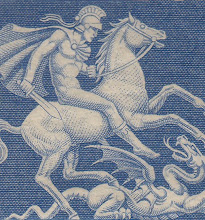This money came from international donors, which is the politically correct way of saying the taxpayers in Britain, America and Japan. There is no hope of recovering it as it would seem that the Afghan police and justice systems are just as corrupt as the bank. No doubt the donors have written it off and decided that their taxpayers must cough up some more.
Massive corruption is a way of life not only in Afghanistan but in most so-called third world countries and nowhere more so than in their neighbour Pakistan. What always staggers me is that the donors are so naive as to hand out cash to these countries; in this case there was so much cash that it needed ten Pamir Airways pilots to be on the payroll in order to fly the loot to Dubai.
I am broadly against foreign aid as most appears to be given for political purposes rather than actual need. This country gives aid to countries such as India, Pakistan and China, all of which seemingly can afford huge military expenditure, way in excess of our own. I feel that aid should only be in response to natural disasters such as earthquakes or floods and not handed out as on a routine basis.
But if we are to give aid, in my view it should comply with the following conditions
- It should never be cash, only goods or services
- Wherever possible goods should be of a type that are difficult to re-sell and should be made in Britain, thus helping ourselves as we help others.
- No luxury goods of any type,
- No armaments or military supplies.
- Any services (eg road building, etc) to be carried out by British companies, using directly employed local labour as necessary.
- Where ever possible, the goods should be marked to indicate they were aid.
"This equipment has been given by the people of Australia to the people of XXXX to assist in the modernisation of their airport"
I think that this was the right approach to aid, it wasn't cash, it couldn't easily be re-sold, it wasn't luxury goods, and it was marked as aid. I wonder if the Australians still do the same in these politically correct times.
Meanwhile, I'm sure that everyone reading this will be pleased to know that while we are struggling to make ends meet, we have helped the government to make millionaires of twelve or so Afghans.
Further details in the Daily Telegraph


No comments:
Post a Comment